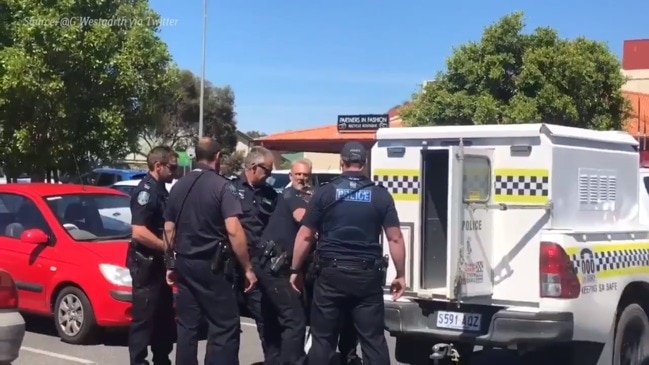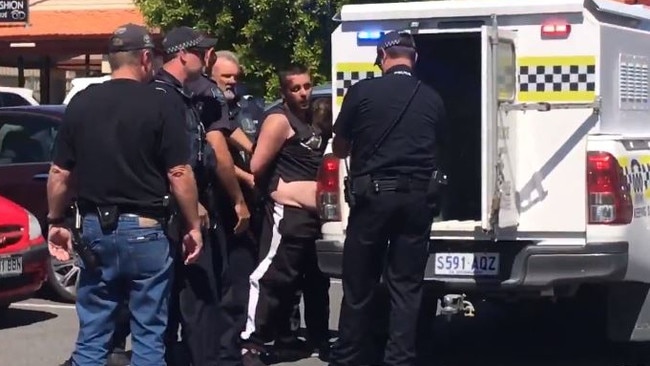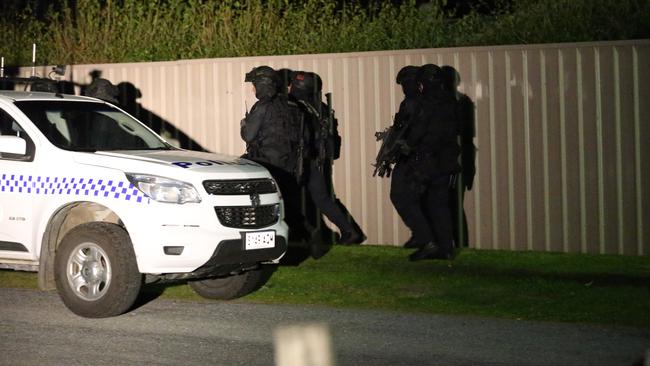David Penberthy: Fiasco of fugitive Luke Brandon shows flaws in our justice system
Extended Supervision Orders aren’t worth the paper they’re written on when it comes to someone like Luke Brandon, who was arrested once again this week, writes David Penberthy.

Law and Order
Don't miss out on the headlines from Law and Order. Followed categories will be added to My News.
It has gotten to the point where it seems almost futile discussing the extent to which the justice system can on occasions fall so woefully short of public expectations when it comes to our normal human desire to feel safe in our homes and safe on the streets.
If we find it futile, imagine being a cop. Imagine working long hours for unremarkable money, placing yourself in genuine danger as a routine part of your job, only to see the people you risk injuring yourself catching being let go by a revolving-door justice system.
A system where, at least in one spectacular case this week, the rule seems to be not that everyone can make not one mistake, but 20 mistakes, and even then nothing truly effective will be done to stop them.
That’s the case with Luke Deane Brandon, who prior to his mad 150km spree from Parkside to Goolwa this week, had repeatedly violated the terms of his release from prison.

Brandon had on four occasions cut off or disconnected his home detention monitoring devices while under a court-imposed Extended Supervision Order (ESO).
He had, on 16 occasions, been caught taking drugs in breach of an ESO. That’s 20 breaches, yet he was still on the street. And he was on the street because the system, as it is currently structured, effectively gambled on the fact that he would straighten himself out, when there was nothing in his record to suggest there was a snowball’s chance in hell of that happening.
It’s worth looking at some of his prior convictions, space permitting. His rap sheet includes assault and theft as well as threatening to kill a person with a kitchen knife while driving with the victim in the passenger seat of a car.
In August 2015, he had been involved in an eight-hour Goolwa siege after police sought him over an aggravated knife robbery.

A reasonable person could be forgiven for presuming that someone who had done something that serious would not be out of jail four years after the crime.
And, while on the run earlier this year, Brandon relapsed into drug use and used a car to allegedly lead police on a pursuit through Strathalbyn, south of Adelaide.
He was arrested and charged with numerous offences including engaging in a police pursuit.
It was after that incident that both Attorney-General Vickie Chapman and the Parole Board went into bat for the public, saying it was clear that Brandon should not be on the streets.
During a court hearing on March 29, counsel for the Attorney-General outlined “a disturbing number of past breaches” of supervision orders.
The Attorney-General’s Department argued that Brandon was a risk to the community if not kept in prison.
To her credit, Justice Judy Hughes agreed, based on some pretty chilling testimony from a senior psychiatrist.
Here is a chunk from Her Honour’s first judgment, in March of this year:
“Mr Brandon does have a significant history of offences against the person, particularly when he is affected by drugs.
“These include common assault on a person other than a family member for which he was convicted in June 2000, assault police for which he was convicted in February 2003, aggravated robbery in company, for which he was convicted in 2006, common assault, for which he was convicted in October 2009, and aggravated assault causing harm with a weapon against a child or spouse, for which he was convicted in November 2013.

“Most significantly, the offences for which Mr Brandon was incarcerated that relate to this Extended Supervision Order (were) commit assault causing harm, aggravated offence with weapon use and dishonestly take property without consent.
“That offending on 11 August 2015 entailed recklessly driving with a victim confined to the passenger seat of the car and making threats with a kitchen knife to kill the victim in the company of others.
“For that offending Mr Brandon was sentenced to a term of imprisonment for one year and five months with a non-parole period of 10 months, commencing 25 August 2015.”
It’s that last sentence where we get to the nub of the problem. He got less than a year and a half for kidnapping someone in his car and threatening to kill them with a kitchen knife.
Less than a year and a half, despite the fact that the sentencing judge could have taken into account his spectacular list of priors and locked him up for many years.
The problem with the Brandon case goes beyond the inadequacy of the head sentences imposed on people like him, to the fact that these Extended Supervision Orders aren’t worth the paper they’re written on when it comes to someone like Brandon.
It is good that the Government has been jolted into acting on this, albeit under no pressure from the Opposition, in a weirdly somnambulant performance from both sides of politics, confirming they consistently underestimate the level of public anger over these cases.
Especially when the pin-up girl for that day of madness is an 80-year-old woman who was allegedly carjacked taking out her bin.

The thing that concerns me more broadly in all this is a comment I heard earlier this week when interviewing one of our most senior police, Detective Superintendent Stephen Taylor, who heads the Serious and Organised Crime Branch, who was sharing the good news that the police have caught 20 suspects in the 36 pub robberies this year, with more arrests to come.
“We are quietly building briefs of evidence against these people,” Supt Taylor said. “The time will come, sooner rather than later, when they get a knock on their door. And they’re going to have a very long time to reflect when they are sitting in their cell about whether it was worth it.”
The key words there are “a very long time”. We can live in hope, I suppose.

